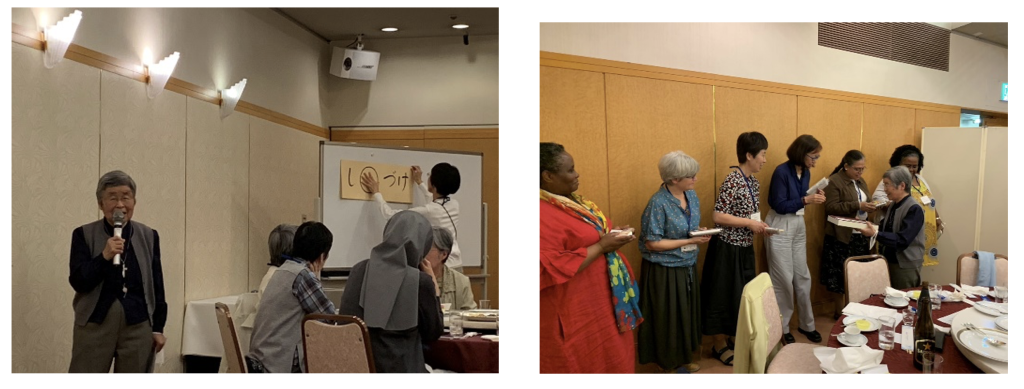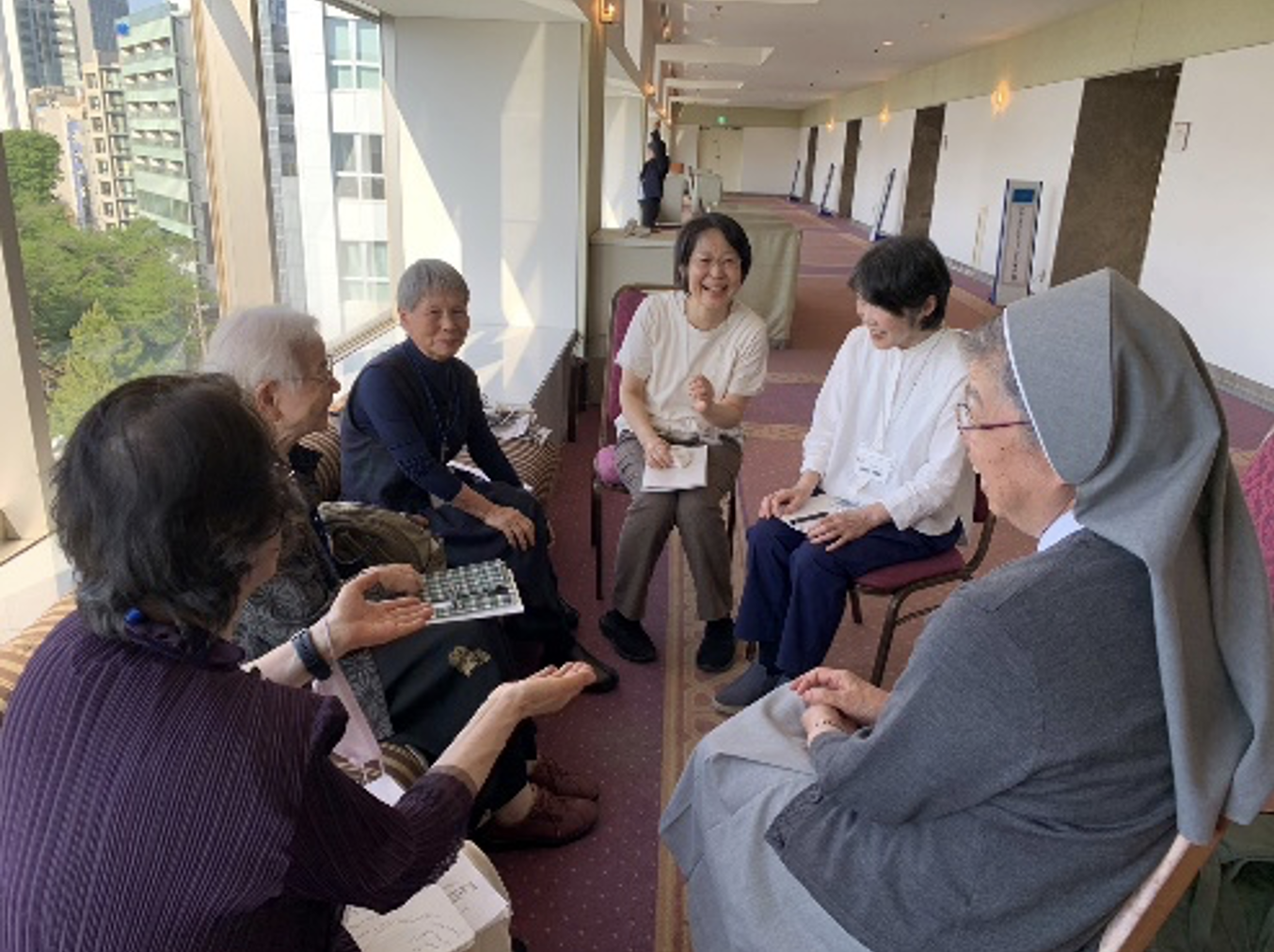Workshop Newsletter (2) Saturday, May 4
The second day of the workshop began with an explanation of the concept of institutional discrimination. Due to political influence, discrimination is deeply embedded in our society, culture and history. Capitalism and patriarchy also have a significant impact on this. When one group of people sees another group of people as inferior for centuries, the feeling of “we are inferior” permeates the consciousness of not only the discriminator but also of those being discriminated against. This is a damaging legacy that is passed down from generation to generation. Furthermore, holding onto anger against those who discriminate can lead those who are discriminated against to choose a violent way of life. Jeanne-Marie explained this to us using the metaphor of a “river.” There is a river with different people living on either banks, using its water daily. If people on one side pour poison into the water to make the people on the other side suffer, it also affects their own lives… Reflecting on this analogy, I couldn’t help but wonder, “How have I poisoned those I live with in the same society, in the same workplace, in the same congregation?”
Based on her own experience, Jeanne-Marie also spoke about the discriminatory mindset that can be cultivated unconsciously. When she sprained her leg, the nurses did not take her seriously, no matter how much she complained about the pain. They told her, “They say Black people are good with pain,” and the doctor who examined her did not give her an adequate explanation. However, as soon as he found out that she was a university professor, he began to explain the situation politely. There is a history of Black people being hospitalized, studied and treated poorly, unable to resist or make their ideas known to doctors. This may have contributed to the assumption among healthcare professionals that Black people have a higher pain tolerance and a lower intellect, and this perception still exists today. She spoke of many other examples, and I was deeply reminded that institutional discrimination is still alive and well. Some people are not treated fairly, and this significantly impedes their social life. This phenomenon continues to have a tremendous impact on both perpetrators and victims over generations. For some of the examples, the sheer magnitude of it was so horrific that we felt compelled to pray in silence for some time.
The purpose of Jeanne-Marie’s story is not to accuse anyone. Even the most devout with the best of intentions can unwittingly wield their power and become oppressors. Realizing this and engaging in frank dialogue is the key to liberation. It is important to be honest about our vulnerabilities, not repress ourselves and understand our sensitivities. We have to shift our focus from intellect-centered education to education from the perspective of emotional intelligence. She suggested a direction for the CND in keeping with its charism of “liberating education.”
We were shown a documentary depicting the Japanese Immigration Bureau’s disregard for the human rights of detainees deemed to be illegal immigrants, as well as a video about discrimination against the Buraku people in Japan as seen by foreigners. It was painful, but confronting discrimination in the history and present day of one’s own country leads to awareness. The content of these videos was heart-wrenching.
Afterward, we shared as a whole group. In addition to sharing our thoughts about what we saw and heard, some of us talked about what we experience in our daily lives in the apostolate and were surprised at the discrimination that we were unaware of.
During the group sharing, we also discussed the topics of “discrimination against women,” discrimination against LGBTQ people” and “discrimination against the poor.” We spent time re-evaluating these familiar issues of discrimination from different perspectives.
At the beginning of the day, Jeanne-Marie said, “If you do not change anything after this workshop, this will have been meaningless.” She told us that we should not only understand with our “heads” and feel with our “hearts” but also connect this to “action.” Through the sharing, we learned that some sisters and associates are currently taking action, and, by asking ourselves what we can and what we are called to do, we were able to deepen and concretize our understanding.
It was another busy day, but we were able to socialize and get to know each other over dinner. This relaxed the atmosphere and restored our spirits before the last full day of work. We want to express our deepest gratitude to Sister Yonemoto, our facilitator, and Sister Hoshi, our recreation coordinator, for their help in making the occasion so much more lively!

